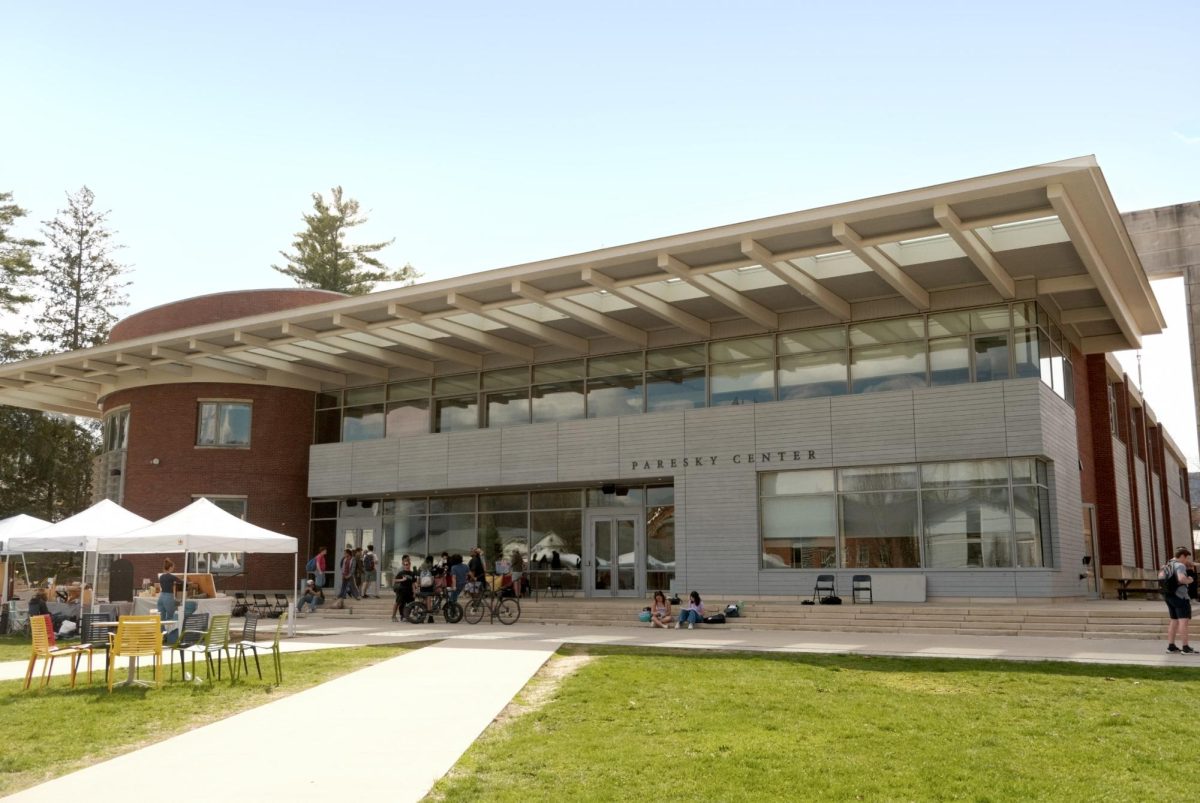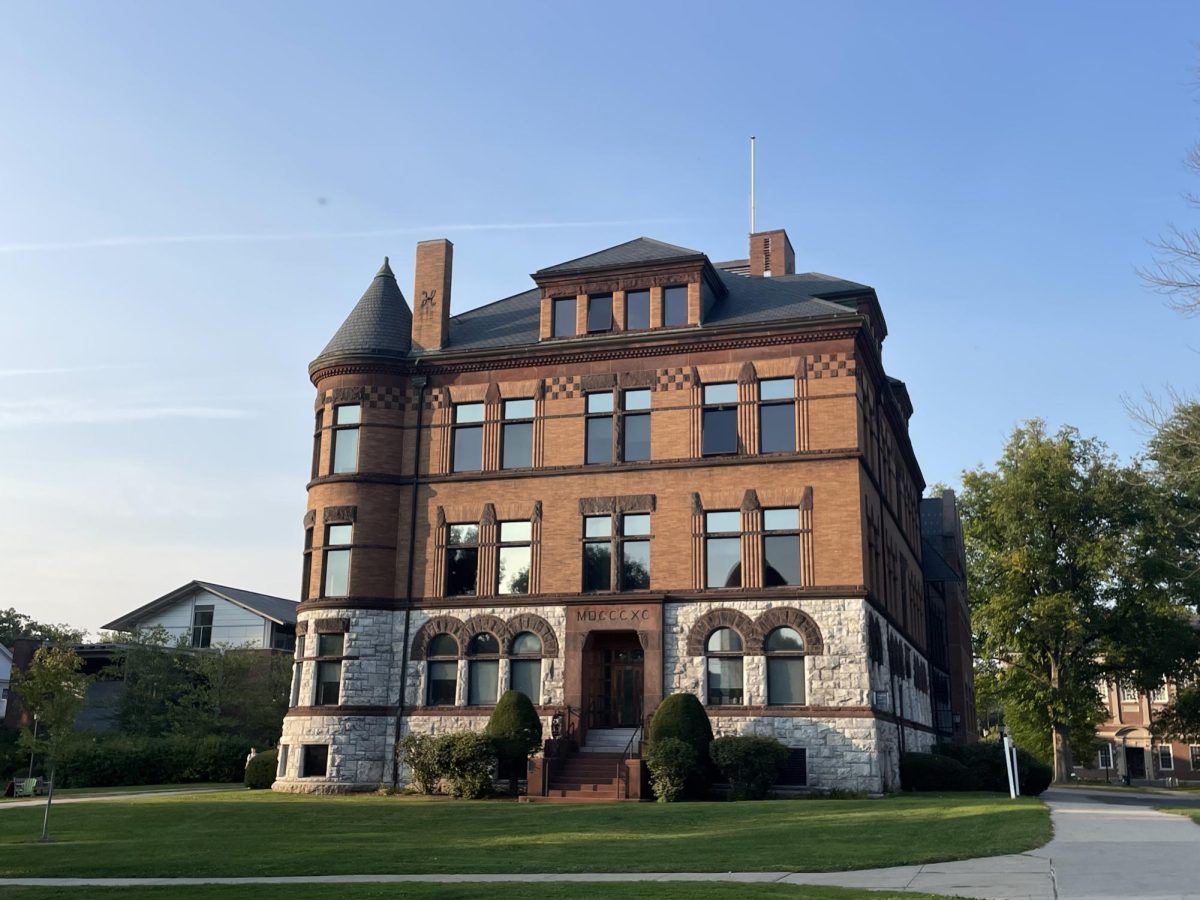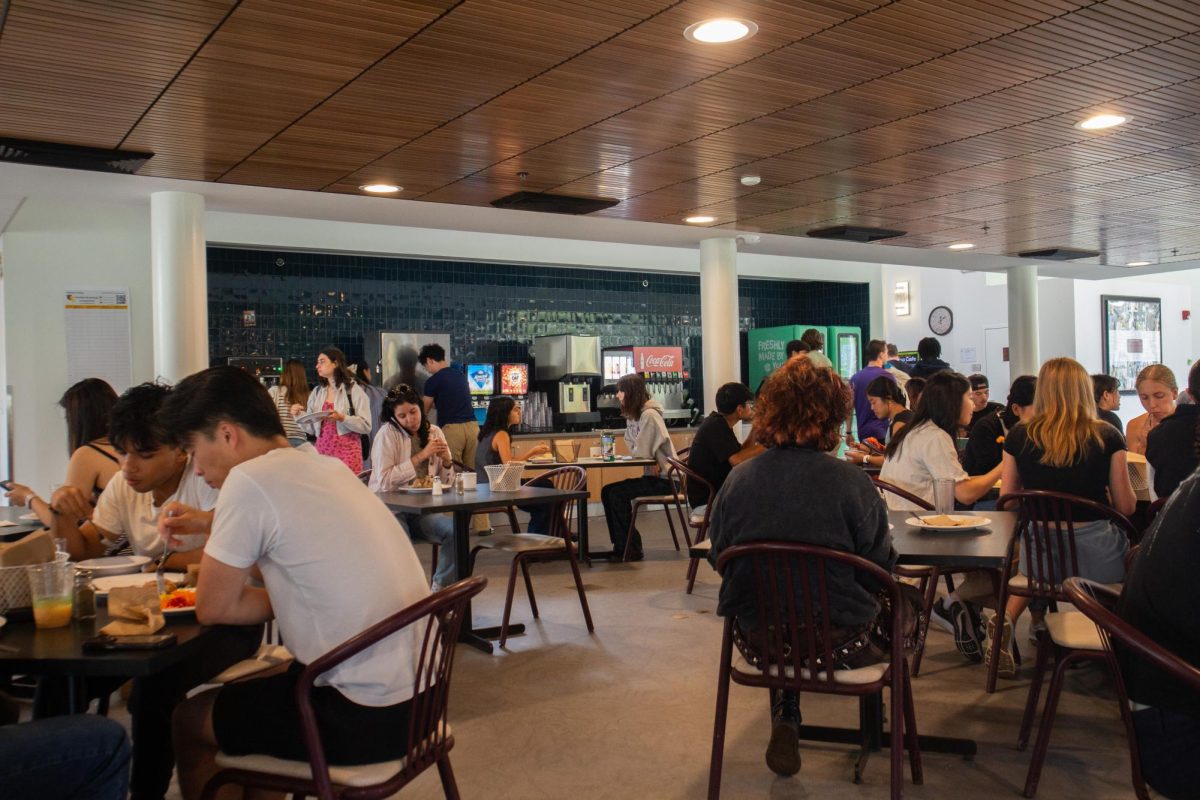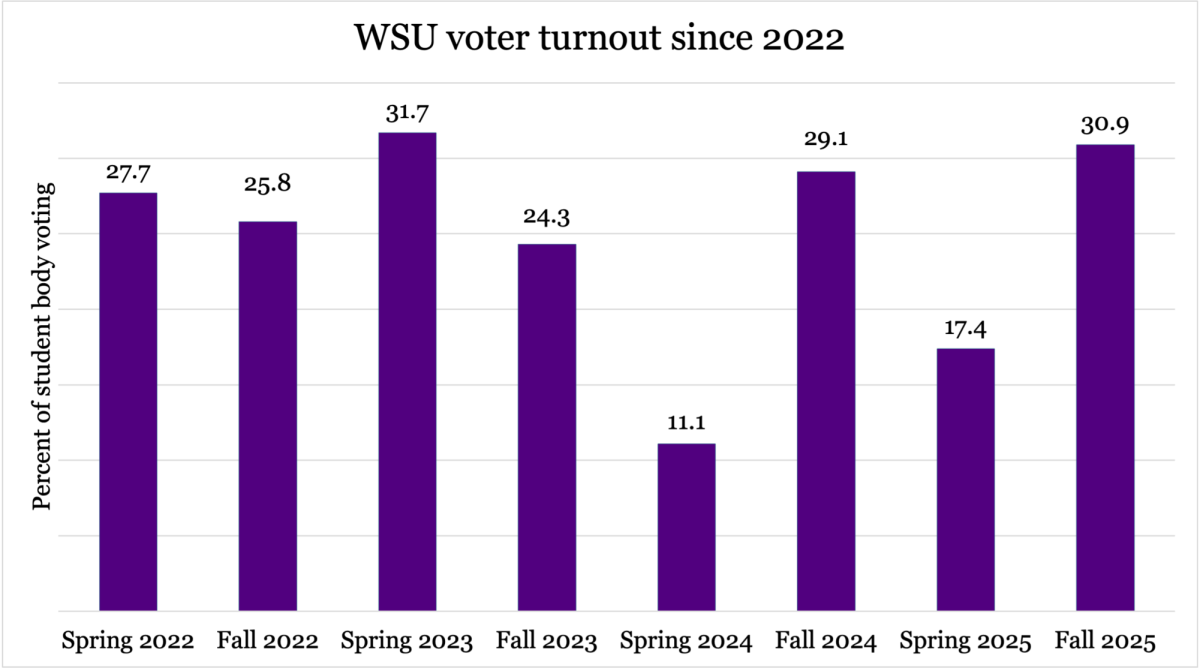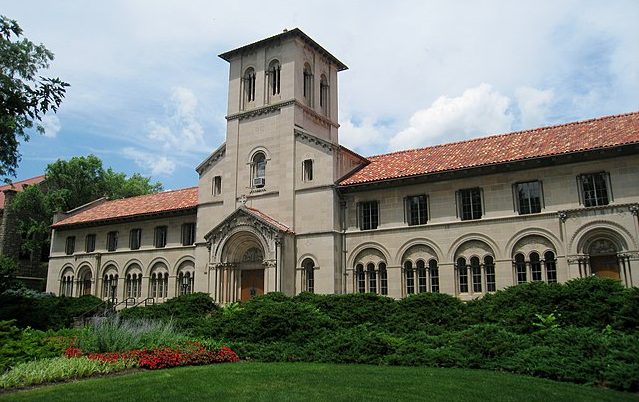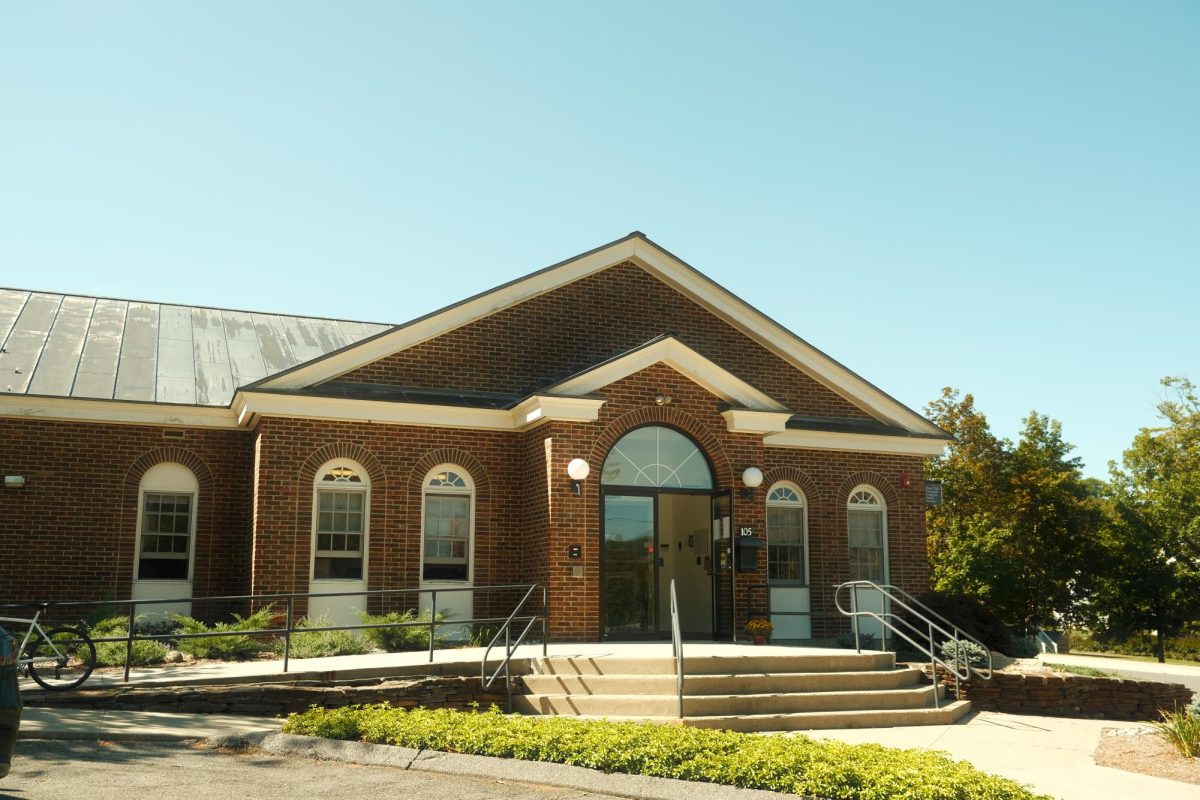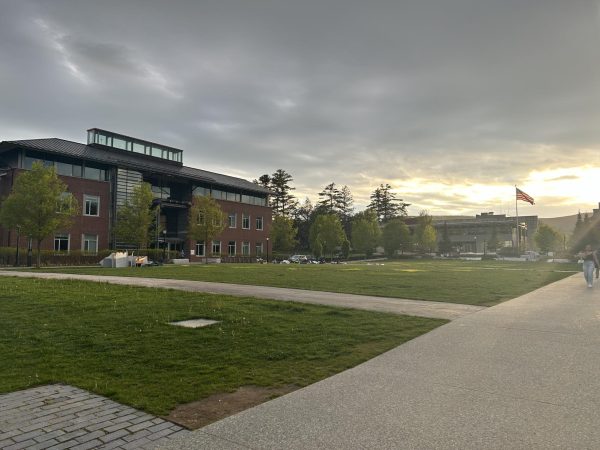
On Monday afternoon, Students for Justice in Palestine (SJP) and Jews for Justice (J4J) closed their encampment on Sawyer Quad. SJP decided to take down the encampment after President of the College Maud S. Mandel and leaders of the Board of Trustees agreed to a meeting between members of SJP and J4J and at least 19 members of the Board of Trustees on May 30 and a follow-up meeting in September, ahead of the Board’s scheduled meeting on September 27 and 28, according to an all-campus email from Mandel.
Protestors decided to close the encampment via “collective discussion and an informal vote,” a spokesperson for SJP wrote in an email to the Record, who has been granted anonymity by the Record due to their concerns for their safety.
“We ended the encampment, but we do not consider the outcomes of our negotiations to be a victory,” SJP wrote in a statement published on May 13. “We will continue pressuring the administration until full divestment and implementation of ethical investment standards.”
Following the decision to close the encampment, 18 members of SJP chose to participate in a 24-hour fast starting at noon on May 14 to commemorate the Nakba Day, according to a subsequent statement published on May 14. Nakba, which translates to “catastrophe,” refers to the mass expulsion of Palestinians from what is now Israel during the 1948 Arab-Israeli war.
“This fast may mark the end of our encampment, but it is more so meant to mark 76 years of the Nabka — the displacement, dispossession, and the enthic cleansing of the Palestinian people that began in 1948,” SJP wrote in a statement published on May 14.
In a statement published on May 15, SJP noted that May 14 also marks 14 years since the founding of the first iteration of SJP, then called Students for Palestinian Awareness, at the College. “We connect our fast with the long legacy of Palestinian liberation activism on our campus,” they wrote.
SJP and J4J will continue organizing around their demands for changes to the College’s investment practices and public stances in order to “divest from genocide [and] … stand in solidarity with Palestine,” according to a joint statement by SJP and J4J published on May 1. SJP and J4J will continue organizing around their demands until “divestment, an end to the genocide, and a Free Palestine,” they wrote in a statement published on May 14.
The groups began their encampment at 4 a.m. on Wednesday, May 1. Protestors held rallies, teach-ins, and group meetings during the 13 days the encampment remained active.
On May 3, four students representing SJP and J4J met with senior members of the administration, including the President of the College Maud S. Mandel, Dean of the College Gretchen Long, Dean of the Faculty Lara Shore-Sheppard, and Vice President for Institutional Diversity, Equity, and Inclusion Leticia S.E. Haynes ’99. Those present at the meeting discussed the timeline of the encampment’s continued presence on campus, Mandel told the Record. The student representatives also reiterated their goals of divestment and transparency in the College’s investment strategies, according to an all-campus email from Mandel on May 8.
Following her meeting with students and their request to meet with the Board, Mandel wrote to SJP and J4J that, on the condition that they “dismantle the encampment and do not disturb Commencement,” she and all available members of the Board would meet with SJP and J4J on May 30 and again next fall. She also shared her message to SJP and J4J with the campus community on May 8.
The Board of Trustees is responsible for governing the investment of the College’s funds with supervision from the Investment Committee and the Chief Investment Officer, according to the College Laws. All members of the Investment Committee will also be invited to the May 30 meeting, Mandel wrote in her response to SJP and J4J.
“The meeting’s goal is to let Board members hear your arguments directly, so that they can take them into account in any future deliberations,” Mandel wrote. “While I understand your desire for actionable steps toward divestment, that is not an outcome you should expect from the meeting.”
Mandel also emphasized in her all-campus email that the College would hold a full commencement ceremony and weekend, amid a wave of canceled or altered graduation ceremonies in response to protests.
“I want to reassure everyone that we are committed to, and are planning, a full ceremony and weekend of events this June,” she wrote. “Some of the participants in the encampment are seniors themselves, and I have asked them to respect their classmates’ desire for a full and festive graduation.”
In her email to SJP and J4J, Mandel also responded to SJP and J4J’s request to make the Advisory Committee on Shareholder Responsibility (ACSR) a standing committee rather than a non-standing committee that responds to requests from the College community. Mandel said that she would relay the proposal to the Faculty Steering Committee for consideration, which is the body responsible for bringing motions to a faculty vote regarding changing the structure of other College committees, such as the ACSR. Professor of Religion Jeffrey Israel, chair of the Steering Committee, did not respond to a request for comment by time of publication.
According to Mandel’s May 8 email, the ACSR received a request from J4J that the College divest from companies that sell weapons or vehicles to the Israel Defense Forces in November, as well as a request from Professor of Philosophy Steven Gerrard in February that the College not divest. The ACSR, having researched and analyzed the issue, will offer a report and recommendations to the Board, who will review those findings, Mandel wrote in an all-campus email last Tuesday.









